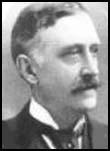 Francis
Marindin was born in 1838. He attended Eton College before
joining the Royal Engineers and saw active service in the
Crimean War (1854-56). Francis
Marindin was born in 1838. He attended Eton College before
joining the Royal Engineers and saw active service in the
Crimean War (1854-56).
Marindin was a keen footballer and played in goal for the Old
Etonians. In 1869 he helped establish the Royal Engineers
Football team and was a member of the team that reached the
first FA Cup Final in 1872. At this time Marindin was playing at
right-back and was captain of the team. Wanderers beat the Royal
Engineers 1-0 at the Kennington Oval.
According to Frederick Wall, the Royal Engineers pioneered the
passing game at a time when most clubs placed an emphasis on the
long-ball or dribbling. To popularize football, the club toured
the industrial areas of England. This included playing games in
Derby, Nottingham and Sheffield.
The Engineers were also defeated by Oxford University in 1874
but won the competition in 1875 when they beat Old Etonians 2-0.
Unfortunately, Marindin was serving overseas and missed the
final. The Engineers suffered only three defeats in 86 games
between 1871 and 1875.
After retiring from playing he became one of the country's
finest referees. This is reflected in the fact that he
officiated in eight FA Cup Finals. He was considered "one of the
outstanding referees who really knows the rules". Marindin was
also President of the Football Association (1874-79).
Marindin retired from the Royal Engineers in 1879 at the rank of
Major and later became a member of the Board of Trade Railway
Inspectorate. He became Senior Inspector of Railways in 1895. In
1899 he submitted a report on accidents on railway workers on
which a new Act of Parliament concerning rail safety was based.
He helped develop London's new electrical lighting system and
was knighted in 1897.
Francis Marindin died in 1900.
|
|
|


